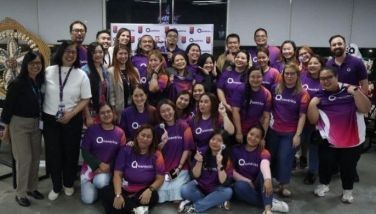Learning ‘Japanese’

My feet are swollen, my back is aching, my lips are chapped and my wallet is empty. But the last eight days I spent in Tokyo was an education in culture, history and tourism that I could never learn from any university. What started out as an invitation from Mitsubishi Motors Philippines Corp. to attend the Tokyo Motor Show and do a test drive of the newest Mitsubishi Montero Sport,ultimately became an extended “walking trip” all over Tokyo with my family who joined me after the working trip was finished.
Given the limited finances of a journalist I could not continue “living in the manner I had become accustomed to” care of Mitsubishi. So we arranged to stay in an Airbnb hosted apartment. This was a different but interesting and educational way of doing things and it was the only way we could afford to stay in Tokyo on our own funds. There is apparently some resentment and resistance among some Philippine hoteliers regarding the entrance or emergence of Airbnb hosted facilities in the Philippines and they are pushing for regulation through legislation.
As someone who built Club Paradise in Palawan and who had a short-lived bed and breakfast facility in the middle of nowhere, I need to point out that protectionist legislation never helps tourism. Hotels and Airbnb apartments don’t compete for the same market or customers. In fact travel agents tend to snub bed & breakfast places because they charge so little and the commissions are almost nil. People go to hotels and resorts for hassle free accommodation and full service. They return to hotels and resorts because of the character and personality of the people who took care of them. It is not always about facilities or prices but a feeling of being at home, familiar or special.
The Airbnb crowd are self service, cook your own, clean up after yourself people who simply need a jump off point for their travels or just a place to sleep. In a place like Tokyo my wife and daughter could have paid the joiner fee at my hotel for three nights at P45,000. But by choosing to stay at an Airbnb their three night/three pax and me joining them for three more nights only cost P36,000. By staying at the apartment I also learned many things about the real day to day lives and system of the Japanese.
Lesson 1: a nation’s discipline is achieved through teaching and training through generations. It does not happen overnight and no matter how many People Power revolutions we hold we cannot simply wish discipline into reality. We were once a respectful and polite society. We did not liter, disposed of trash properly (albeit not environmentally friendly) by burning trash. But sometime after Martial Law it was as if we had a nationwide subconscious revolt against authority in and outside our homes. We devalued and discarded the importance of daily teaching and daily training in order to instill discipline. To be modern and western, we deleted respect and discipline and replaced it with being “progressive.”
Here in Tokyo, one immediately notices how clean everything is but not because they have thousands of street sweepers or armies of cleaning machinery. Things are clean because it is their culture to be clean. The Japanese are a people obsessed with cleanliness. Here, school children are taught and required to help clean the classroom and the school. They learn to cook meals, read maps and take the train station. What is taught and learned in school is emphasized at home.
The society does not see it as demeaning or taking advantage of child labor. It is seen as part of training a child in the way society thinks, lives and behave. School is first about cleanliness, manners, practical knowledge that makes you useful at home. Cleanliness is ingrained and you grow up with a personal discipline and accountability to be clean, to keep your surroundings clean. People follow the way thing are done and we’ve been warned that people who dispose of their garbage in the wrong way will be publicly corrected by the building manager, or a local. They will hold others accountable.
As many know, the Japanese leave their shoes and sandals, umbrellas etc at the door and walk barefoot or with socks. Again its about cleanliness, not tracking dirt into homes. Unlike modern homes, the bathroom of this apartment was like a middle class bathroom in Manila, the only difference being that you use rubber sandals to keep your feet and the bathroom floors clean. The rubber sandals never leave the bathroom. Then you notice a plastic or maybe wooden stool to sit on while you have a small container or pail, a small scrub or brush or face towel to “exfoliate” yourself before going into the square tub for your bath. Again it is about thoroughly cleaning yourself.
Lesson 2: If Filipinos memorized the verse: “cleanliness is next to godliness,” the Japanese people seem to grow up believing that politeness is next to cleanliness. The Japanese are so polite. In everyday things except maybe when you catch them during the rush hour stampede going into or coming out of trains and train stations. As difficult and embarrassing as it may be for them to communicate in English, they try their best to help the lost or confused “Gaijin” often even going out of their way to bring you to your destination. A recycling officer a.k.a garbage collector actually brought out his nice android phone, google-mapped where we needed to go and did his best to direct us.
Politeness and humility seem to be matter of fact for them and the best example was when a president of a shipping lines fetched us at our apartment, all by his lonesome self, no assistant, no car, no driver. He came by train and we all went on foot to sample Kobe Beef at a ritzy restaurant called Mon Cher Tonton. I seriously felt awkward coming from a country where people of his caliber expect to be served or will send a proxy to take care of the guest. The Kobe beef was great but the host and his conduct was unforgettable.
Lesson 3: the Japanese take pride in who they are and what they are. They maybe self-effacing, comical in their humility but they present themselves with class, they invest and make effort to look good, neat and very presentable often very fashionable. The weather is not an excuse to look cheap trashy or ill kept. School uniforms reflect quality as much as elegance, and even the young people generally look made up.
What they are on the inside is reflected on the outside....
* * *
E-mail: utalk2ctalk@gmail.com
- Latest
- Trending



























